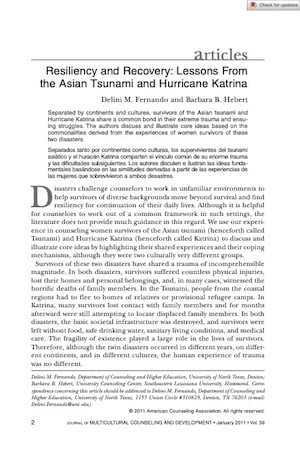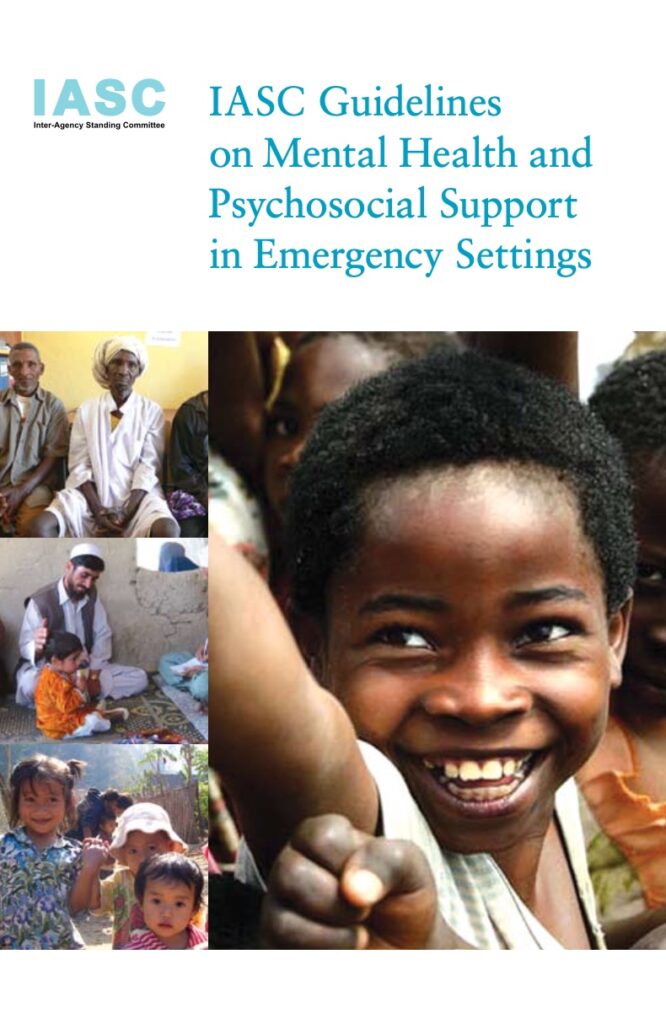Spirituality in China This article presents some of the differences between how spirituality is conceived of in the East and the West. It explores how, in the context of China, different spiritualities are without doubt deeply rooted in social and community experience, and these societies and communities are permeated with the influence of a […]
The Fragility of Existence In both contexts drawn upon in this article, the fragility of existence played a large role in the lives of survivors. Although the twin disasters occurred in different years, on different continents, and in different cultures, the authors argue that the human experience of trauma was no different. Commonalities in the
Resiliency and Recovery: Lessons From the Asian Tsunami and Hurricane Katrina Read More »
Gaps This seminal article looks at the work of World Vision International, an international faith-inspired non-governmental organisation, and their response to the earthquake in Haiti in 2010. it identifies a significant gap in materials and interventions that combine spiritual needs with the mental health and psychosocial support needs of affected communities and a lack of
Coping This article explores how older adults prepared for and coped with the aftermath of Hurricane Katrina. It identifies two categories, coping with daily hassles after Hurricane Katrina and coping with the aftermath of hurricane Katrina, to explain what and how older adults managed life following the storm and flooding and how they engaged in
Older Adult’s Responses to Hurricaine Katrina: Daily Hassles and Coping Strategies’ Read More »
Shattered Assumptions This article reviews the qualitative research regarding religion/spirituality and bereavement to examine the complicated interplay of religion/spirituality and meaning in times of stress. It argues that bereavement is a significant stressor with the potential to ‘shatter assumptions’ about the benevolence and meaningfulness of the world and one’s place in it. Assimilating Loss This
Coping This article argues that spiritual and religious beliefs can impact individuals’ ability to cope with traumatic events. Narrative building Religious beliefs can help people cope with traumatic events through aiding them to build narratives based on health perspectives which may facilitate the integration of traumatic sensorial fragments in a new cognitive synthesis, helping to
A multi-sectoral, inter-agency framework The Inter-Agency Standing Committee (IASC ) issues these Guidelines to enable humanitarian actors to plan, establish and coordinate a set of minimum multi-sectoral responses to protect and improve people’s mental health and psychosocial well-being in the midst of an emergency. Populations affected by emergencies frequently experience enormous suffering. Humanitarian actors are
IASC Guidelines for Mental Health and Psychosocial Support in Emergency Settings Read More »
Conceptual Framework A conceptual framework for psychosocial intervention in complex emergencies is presented, which seeks to relate together diverse approaches to community support within a single Three core domains The framework identifies three core domains with respect to which the resources of communities, the impact of conflict and means of intervention can be conceptualize. These
Religious coping, health and adjustment This classic study attempts to identify positive and negative patterns of religious coping methods, develop a brief measure of these religious coping patterns and examine their implications for health and adjustment. Positive religious coping This study based in United States finds that religious coping can promote forgiveness, seeking spiritual support,
Patterns of Positive and Negative Religious Coping with Major Life Stressors Read More »









